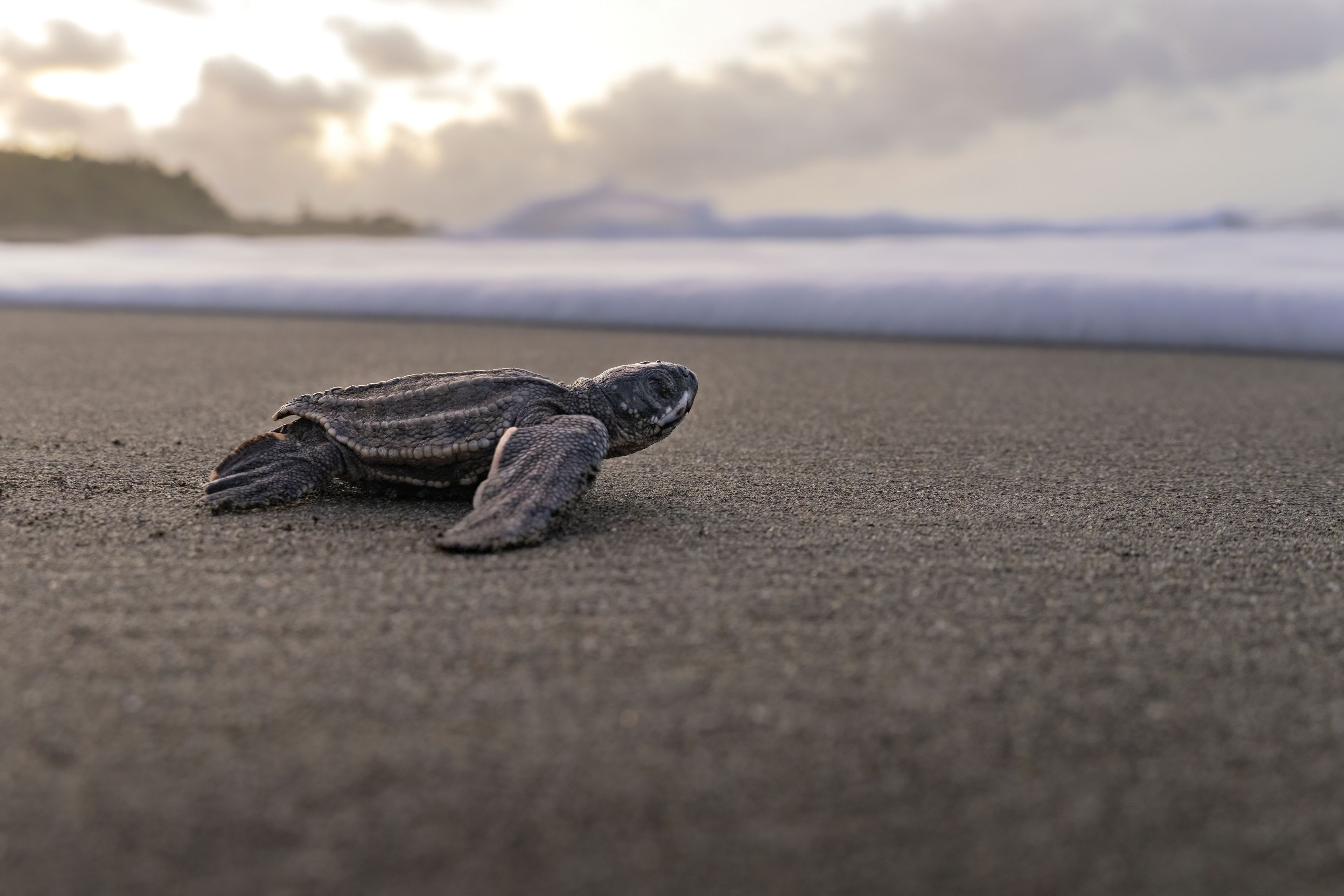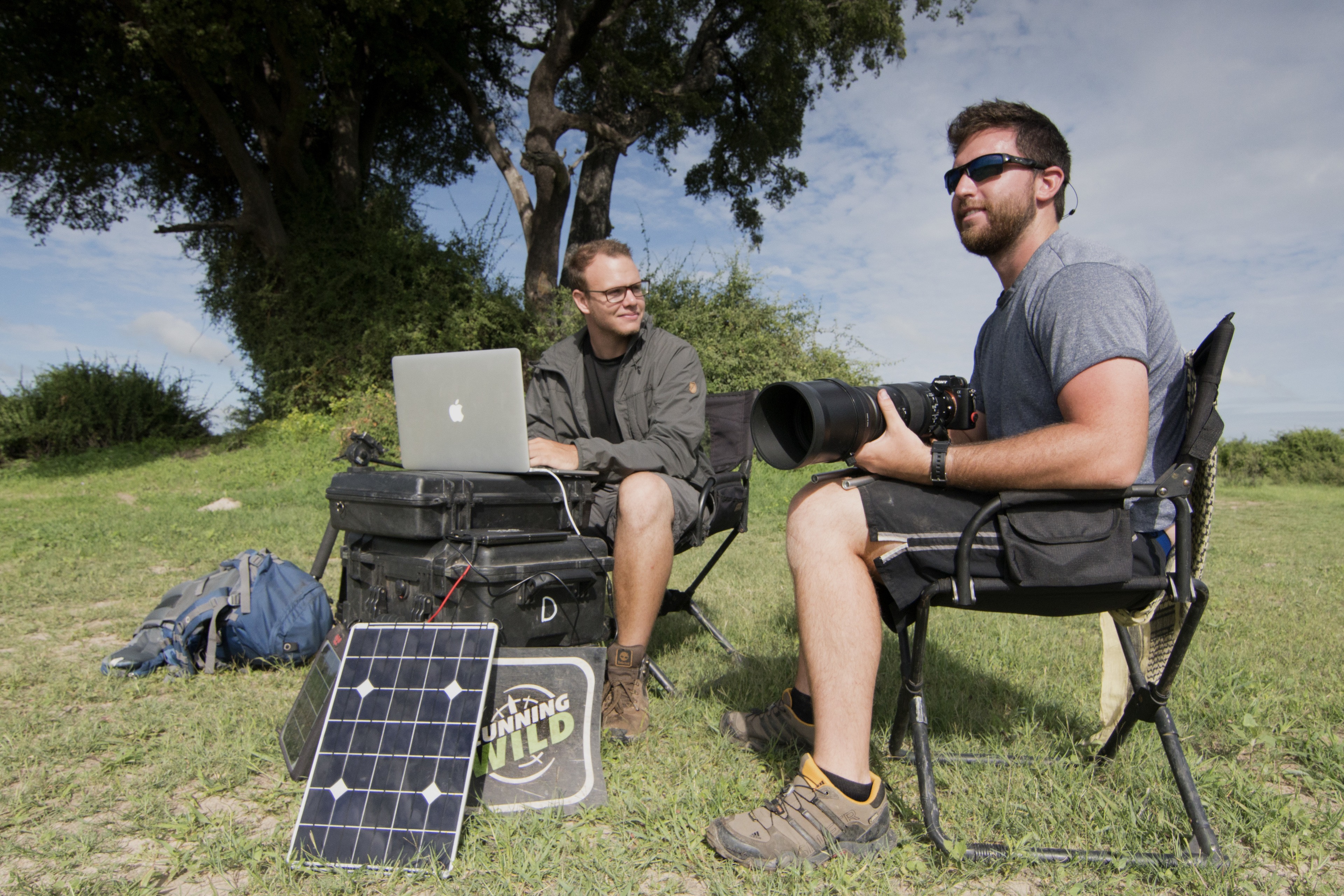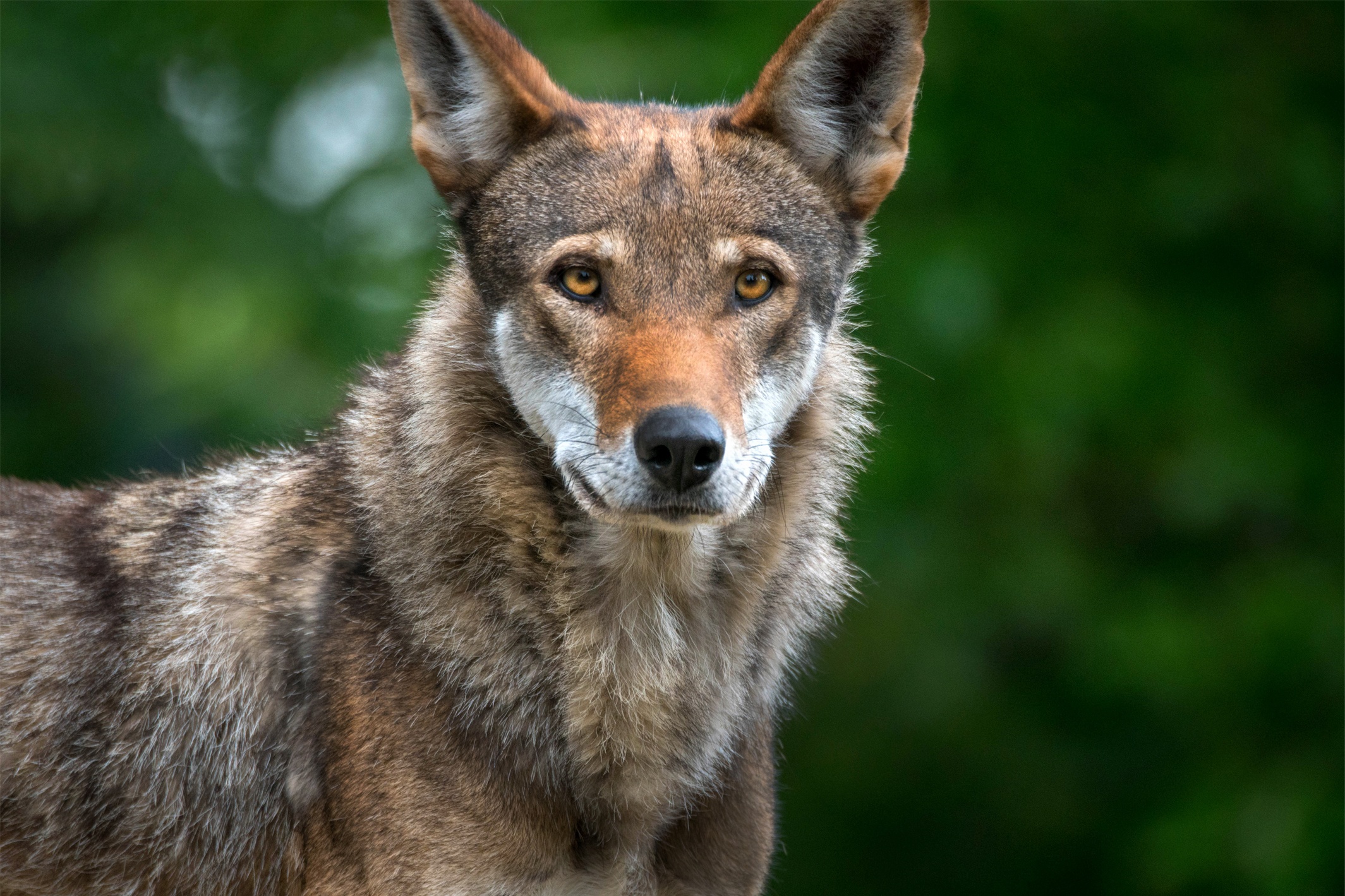
As conservation storytellers, BGSU alumni create impact through their global wildlife films
Justin Grubb and Alex Goetz share compelling stories to drive environmental change
By Laren Kowalczyk ‘07
Bowling Green State University alumni Justin Grubb ‘14 and Alex Goetz ‘13 travel the world together, filming wildlife in some of the most serene places on Earth — chronicling environmental battles in local communities and shepherding conservation efforts globally.
They’ve scuba dived in the remote Marshall Islands in the central Pacific Ocean, explored the vast African safari, watched baby elephants curiously explore Botswana and experienced countless other breathtaking adventures.
Grubb and Goetz are conservation storytellers committed to educating and inspiring a new generation of changemakers to protect the Earth’s most vulnerable creatures and habitats.
Together, they own Running Wild Media, an award-winning production company they began in 2013 as students at the University.
“Running Wild Media functions like a conservation organization,” Grubb said. “We start our projects with the impact in mind. We determine how to address the conservation or community challenge and then develop ways to create the most significant impact through our storytelling.
“Storytelling is an incredibly powerful cross-cultural communication tool. Telling stories is how people have shared lessons and ideas for thousands of years. People are drawn to stories, and telling them visually through photography and video is our passion.”
The pair met through a student organization called "BG on TV" that produced an entertainment show on WBGU-TV, the local PBS station licensed by the University.
Goetz, a film production and environmental science major, and Grubb, a biology major, bonded over their shared passion for wildlife conservation and visual storytelling. In 2013, they spent several weeks in Costa Rica filming a wildlife documentary called "Running Wild," funded through a grant from the University.
“It was through that experience that we decided 'Running Wild' could be more than a documentary,” Grubb said. "We spent a lot of time outside of class filming, doing our own passion projects and pushing ourselves to the limits. BGSU really helped set us up for success through those extracurricular opportunities by allowing us to explore our passions and refine our craft.”

A decade of storytelling
In the decade since their wildlife filmmaking journey began, Grubb and Goetz have amassed an impressive list of accomplishments, including Emmy nominations, a National Geographic film award, recognition as emerging conservation leaders and a reputation in the industry as diligent and respectful filmmakers.
Their work has appeared on National Geographic, Disney+, Discovery+, PBS, CNN, BBC One and CBS Sunday Morning.
Although grateful for the opportunity to travel the world, the pair recently began shifting their focus domestically, hoping to create even more impact at home.
“We have been fortunate to travel to a lot of incredibly amazing places,” Goetz said. “But through those experiences, we realized that some really important stories are being overlooked in the United States, especially in the Midwest.”
One example is the story of hellbender salamanders — the largest salamander in the Western Hemisphere — considered an indicator species of a healthy ecosystem.
Running Wild Media’s 19-minute film called “Hellbent” follows members of a small rural community in Pennsylvania banding together to fight the installation of a fracking waste injection well that would threaten the salamander’s habitat and the source of clean drinking water for the town’s 700 people.
Awarded Best Short Film at the New York Wild Film Festival, Grubb said "Hellbent" celebrates the community’s achievements and promotes using a little-known law called “rights of nature” to fight environmental injustice. The law dictates that an ecosystem is entitled to legal personhood and has the right to defend itself in court.
Grubb said the battle between the fracking corporation and the Pennsylvania community has endured in court for a decade and continues. However, the injection well was recently plugged, a monumental achievement for the community and the salamander.
“We made this film to promote 'rights of nature' and celebrate the achievements of this small community,” Grubb said. “We want this film to ignite conversations about the implications of corporations coming in and bullying communities and educate communities about how they can fight back.”
Another impactful story documenting conservation efforts in the U.S. was the reintegration of endangered American red wolves in North Carolina. American red wolves neared extinction in the 1960s due to intensive predator control programs and habitat loss, according to the U.S. Fish and Wildlife Service.
Fewer than 30 American red wolves exist in the wild today.
“Our film sought to educate local landowners in North Carolina about living and co-existing with red wolves,” Grubb said. "It’s a critical educational tool and something we’re continuing to work on and develop.”

Expanding their reach
To broaden their impact, Grubb and Goetz are looking for additional distribution networks aside from the traditional ones nature lovers turn to for content.
“It’s very exciting when our work is on National Geographic, but that is an audience we know already cares or has an interest in conservation,” Goetz said. “We’re looking into alternative distribution networks that can reach and inspire new groups of people.
"We’re striving to create content and films to help people understand that things don’t have to be the way they are right now. There’s a better way we can be doing things to help wildlife."
The pair also have begun training local filmmakers across the globe to increase and elevate stories of conservation. They’re working with five conservation organizations in Africa.
“Everyone has the capacity and ability to tell a story and share it globally through the internet,” Grubb said. “Our goal is to help them duplicate what we’ve done to drive change in their regions.
"Our mission is to tell compelling, visual stories of the natural world to create an impact on conservation.”
Related Stories
Media Contact | Michael Bratton | mbratto@bgsu.edu | 419-372-6349
Updated: 06/04/2025 08:19AM




